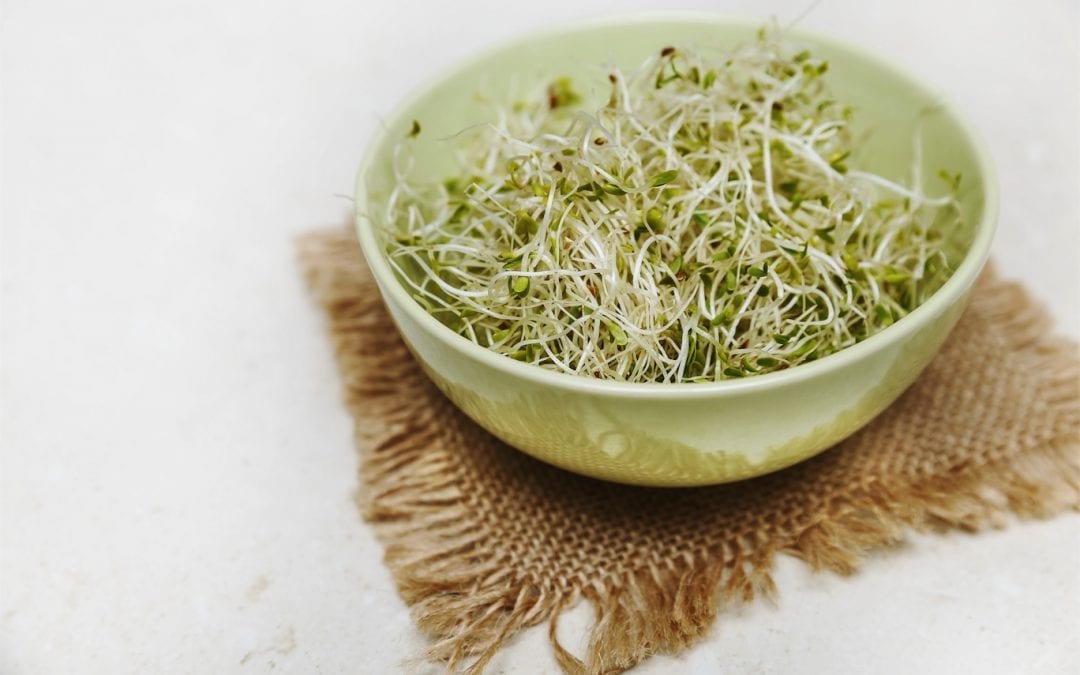In Part 1 of this article, we looked at why women can gain weight, especially on the abdomen when they hit their forties. Now, we’ll take a look at some specific diet and lifestyle strategies you can use to balance hormones and stay healthy
Estrogen balance
Regular consumption of phytoestrogens
Phytoestrogens are plant-based compounds (lignans, isoflavones, coumestans, catechins) which have a weak effect on estrogen receptors. They are often used to reduce hot flushes. Phytoestrogens include:
Soy – choose fermented and non-GMO options like tofu and tempeh. Avoid having too much soy milk as this is not how soy is traditionally consumed.
Linseeds – You need seeds rather than the oil as the lignans are only present in the hull. The seeds to need to be ground or they pass right through you! Keep them in the fridge to avoid rancidity. Dose is 1-2 tablespoons per day.
Other foods with phytoestrogens: alfalfa, green tea, spinach, legumes and berries.
**Caution may be required with phytoestrogens if you have a hormone-sensitive cancer
Detoxification of estrogen
Support healthy detoxification of estrogen with regular consumption of brassica vegetables (broccoli, cabbage, kale) and turmeric.
Avoid exposure to environmental estrogens
Bisphenol A (BPA) found in some plastics, triclosan (Antibacterial hand wash), fluoride and chlorine are all endocrine disrupting chemicals. Reduce or eliminate your exposure to them.
Promote progesterone
To make progesterone, you need plenty of Vitamin B6 (bananas, avocado, egg yolk, lentils, salmon tuna), Vitamin C (Citrus, kiwi fruit, capsicum) and magnesium (leafy green vegetables, figs, almonds, eggs, molasses, whole grains)
The herb parsley is more than just a garnish. It also supports progesterone so add it liberally to salads, soups and pesto.
Curb Cortisol to balance hormones
Cortisol is a “Goldilocks” hormone and to take us from too much to just enough try the following:
- Reduce moderate-high intensity workouts over 30 minutes and do short duration, high-intensity cardio and weights. Combine this with walking (low intensity (i.e., ambling, strolling and sauntering not power walking, preferably in nature) or yoga, tai chi.
- Reduce caffeine (1 espresso per day), no more than one standard alcoholic drink per day with at least two alcohol-free days per week.
- Eat a healthy diet with regularly timed meals (avoid limiting calories, going low carbohydrate or fasting as these can raise cortisol)
- Prioritise refreshing sleep of at least 7 hours per night. This is when your body resets many hormone signaling pathways.
- Engage in daily mindfulness activities. Meditation has many proven benefits, and I have found the Headspace app a useful tool for getting into a routine.
- Make time for fun and relaxation with friends and family and learn how to say NO so you can get some free time.

Need help with your hormones?
Norelle Hentschel is an experienced Naturopath with a clinic in Stones Corner, Brisbane who enjoys supporting her clients to reach their health goals.
Want more articles like this?
Receive a monthly digest of natural health information to help you become “health” sufficient!
PS. Your inbox real estate is precious, and we will never annoy you with sales pitches or share your details with anyone else. One email a month — that’s it.

